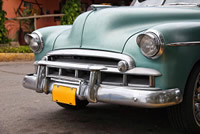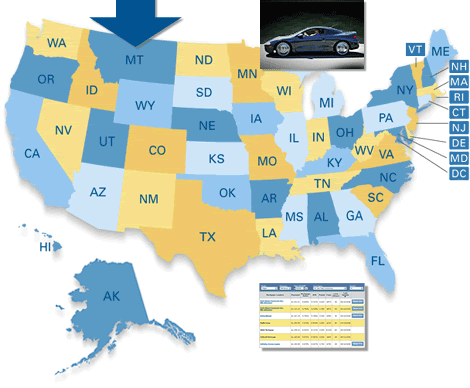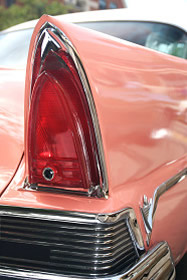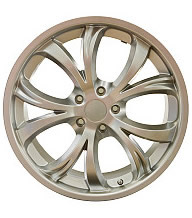Automobile Financing
What your car is really saying
by Broderick Perkins
Chances are, your car won't talk to you if it's got a faulty accelerator pedal, as millions have recently discovered in the massive Toyota recall, but your baby will speak in volumes when other problems crop up.

Still, it's tough for you to interpret what your car is babbling about when it goes thump, bump, bang, wonk, wang or wank.
Lucky for you Consumer Reports has stepped in to decipher car talk and let you know when not to worry and when to call your friendly neighborhood auto mechanic.
Listen closely.
Squealing brakes. Not to worry. Mice aren't inside your wheels. Squealing during light braking typically won't affect your ability to stop your car, but it could mean brake pad vibration. Even new pads can squeal. A high pitched squeal while the car is moving could be a sign your pads are worn -- even if the car subsequently stops when you hit the brakes. In either case, have a mechanic check them, Consumer Report advises.
Grinding sound from brakes. Drive straight to the mechanic. Better yet, consider a tow, especially if you haven't used your auto club towing service for a while. It won't cost you a cent for the tow (with certain auto club memberships) and it's better to be safe than sorry -- even if you have to pay for the lift. When your brakes grind, your car is unsafe to you and others on the road. Because you've waited too long, expect a higher repair bill than if you'd replaced those pads earlier. When the brake pads wear down what's left grinds against the brake rotor and begins to eat it. Now you may have to replace the rotor and get new brakes.
Squeals under the hood. Your cat is safe. What can sound like prolonged chalking on the blackboard, especially when you rev the engine or during cold starts, often means a drive belt is slipping. You may need a mechanic to adjust it or replace it if the belt looks shiny and glazed.
Light engine rattling. No, your kid didn't drop a bag a marbles into the engine. Could be pinging. Sounds like tiny ball bearings in your engine. Listen when you are accelerating or driving uphill. You may be saving a few bucks on that low octane fuel or, if you car is older it could be suffering carbon buildup. If the pinging persists your engine could pay -- and so could you. First check your coolant's temperature. Add more if necessary. Also try switching to a higher octane. Otherwise, call your mechanic, says Consumer Reports.
Rhythmic thumping. If you are driving on a smooth roadway and the noise increases and decreases as you accelerate and decelerate, stop and check your tires for torn rubber, sidewall bubbles and flat spots. Tears and bubbles can become nasty blow outs. Get new tires. Torn rubber or a bubble could lead to a blowout. Don't hesitate to have flat spots checked, though they may not be serious. Also for shaking, vibrating steering, especially at higher speeds, you may need your wheels balanced or an alignment. See your mechanic.
Hissing under the hood. It's likely not a snake. Consumer Reports says you likely have a vacuum leak, caused by a worn, cracked or disconnected hose. Chances are your vehicle's engine is also running or idling rough. The "check engine" light is your car's sign language. If it's on, it's trying to tell you something. You may be able to reconnect a disconnected hose, but if you need to replace it, a mechanic is better equipped for the job. Also, hissing could be your coolant boiling over. Let the car cool, add more, see a mechanic for radiator problems.
Learn more about your vehicle from Consumer Reports' respected vehicle reports.
Other related articles:
Electric Cars: Is it Right for You?
Automotive Loans: What Laws Protect Car Buyers?
Auto Loans Advice: New Cars & Used Cars
New vehicle purchase tax deduction deadline days away
Car Buying vs Car Leasing
New and Used Auto Loan Rates
Choose Your State Below

Start by selecting your state

Automotive Loans: Trading in a Car
Automotive Loans: What Laws Protect Car Buyers?
Automotive Loans: Trade In or Sell a Car?
Automotive Loans: Is Zero Percent Financing Really Possible?
Automotive Loans: Determining a Down Payment
Automotive Loans: The Truth About "Add-Ons"
Automotive Loans: Top 5 Mistakes When Buying a Car
Automotive Loans: Shopping Online
Automotive Loans: Dealer Incentives to Buy
Automotive Loans: Car Buying Incentives
Automotive Loans: Should You Buy New or Used?
Automotive Loans: What to Know About Interest Rates
Automotive Loans: Negotiating a Loan with a Dealer
Automotive Loans: How Much Car Can You Afford?
Automotive Loans: Understanding Typical Loan Language
Automotive Loans: Types of Financing
Automotive Loans: Buying Vs Leasing
Automotive Loans: Applying for a Car Loan

Buying a Car: Standard and Extended Warranties
Car Buying: Financing Background and Steps
Leasing a Car: Two Types of Leases - Closed & Open
Buying a Used Car: Two Options
Buying a Car: 5 Steps to Find the Perfect Deal
Automobile Buying/Financing

5 Steps to Find the Perfect Car
Auto loan defaults to rise 7 percent in 2010
Auto Show Season Tips for Buyers
When is the Best Time to Buy a New Car?
Making a Vehicle Purchase? Enjoy These Helpful Tips
Chances are, your next car will be used. Drive a hard bargain
What your car is really saying
2012 President's Day auto sales among best ever
Special Report: Hitting the Brakes on Auto Dealer Loans
Auto Insurance
Buying Ins - Shopping for Insurance
Best Car Insurance Plan for You


